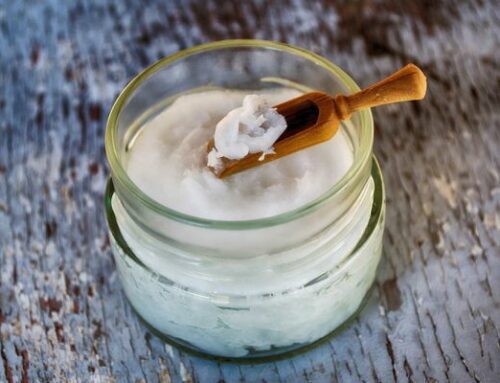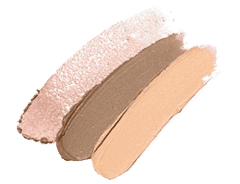With so many products and product types out there, it can be confusing for both customers and enterprising individuals who have or wish to start a beauty brand to understand what some of these raw cosmetics materials actually contribute to a product. This is nothing to be ashamed at, as scientists and chemists we don’t expect everyone to know precisely what common cosmetic ingredients and chemicals are used and how they are classified—after all, that’s what we’re here for!
That being said, you might be curious to understand how cosmetic products come together and how certain effects are achieved broadly. Maybe you’re a brand owner and you want to be familiar with the more intimate details of your products so that you can be armed with knowledge. If that’s the case, this article is for you! Here are 3 common cosmetic ingredients in your products.
Common Cosmetic Ingredients
1 – Proteins and Protein Derivatives
Proteins are critical molecules that perform many important functions in your body. They are commonly considered building blocks when describing their biological function. If you’re curious about how proteins function in the body, the NIH/NLM has a great overview of proteins.
We’re not just here to give you a lesson on nutrition science though! Proteins in cosmetics function similarly as they do in your body. Proteins are an indispensable ingredient in many cosmetic products. Particularly skincare and hair care are two product categories that benefit from quality protein raw materials to a great degree.
Proteins make for a great film or sealant in skin/haircare products. This means that when paired with other ingredients, you can make something that is able to moisturize the skin and keep it moisturized for a lengthy period of time. If you caught our blog on lipstick throughout different time periods in history, you know that there have been some strange things people have used for cosmetic ingredients throughout the ages. Most of them were unsafe, however, an old folk remedy (if you can call it that) has been to put eggs in your hair as a way to moisturize and create a silky texture.
Putting eggs in your hair is a centuries-old practice that has made it to our modern era. Unlike many folk remedies that turned out to be placebo or hogwash, the eggs in the hair thing actually has merit. What do we know about eggs? They’re viscous, fatty, and most importantly—are high in both protein and biotin. If you’ve done any homework on better hair care and caring for your skin and nails, you’ve probably heard of biotin, the B-vitamin responsible for those things.
Unfortunately, it’s not as simple as putting egg whites into a spray bottle and selling it as that would not only deter most people who dislike the smell of eggs but also would be a criminal waste of food. The next best thing? Phoenix Chemical’s NEOPRO. As part of our Green Chemistry program, NeoPro are egg-white proteins that provide effects similar to that age-old recipe of dipping your hair in eggs—just without the waste! Neopro can be used to improve the texture and tone of your skin or build viscosity and lather when included in shampoos and body washes. Most importantly, it is an incredible ingredient to include in any products you want to market towards healing damaged hair or those with dry hair.
2 – Thickeners
Thickening agents can alter viscosity without changing too much in other properties of a product. There are many different types of thickeners used depending on the product and what needs to be achieved. Thickeners, like other raw materials, can be synthetic or manufactured. For example, many lotions use an ingredient called carbomer which acts as a synthetic thickener that can give body to a product. Since viscosity is incredibly important to lotions and creams, this is a natural fit. You may have seen guar gum in a variety of products, it achieves a similar purpose but it is an all-natural ingredient. Speaking of all-natural ingredients, if you need a versatile thickener that’s all-natural, we suggest Pelemol CP!
Where it gets complicated is that there are different thickeners that one will want to use depending on the function of the product. While guar gum and carbomer may work for lotions, there are perhaps better options that are suitable to things such as shampoos—which are meant to strip away as opposed to seal. One of our products, Catemol MMM can be used to thicken and condition shampoos, facial/hand cleansers, and other bath cleansing products that require a combination of lather and body. Thickeners aren’t just important for helping a product spread well, it’s also important for the experience of using that product. Consider expensive scented hand washes, part of that experience for a customer is enjoying how it lathers in the hand. Thickeners give a strong base in which other ingredients that help with lathering can work best.
3 – Emollient
Emollients are another highly utilized product type and a common cosmetic ingredient that is crucial to creating a wide variety of products. You can find emollients in lotion, lipsticks, and many other cosmetics. Emollients are used to prevent water from evaporating out of the product—moisture loss, in other words. One of the most common emollients that surely the majority of people are aware of is Vaseline (petrolatum jelly). This thick, waxy jelly was once very commonly used for dry skin and chapped lips, however, while it is still sold, more sophisticated solutions have come around without any of the drawbacks to using petrolatum.
We have a wide range of emollients in the form of our product Pelemol and its many variations. Like many cosmetic raw ingredients, slight changes to the ingredient are necessary to make it suitable for a specific product. For example, you may not want to use the same emollient in lipstick as you would use in antiperspirants. The desired texture between the two products is very different.
Looking for a Raw Cosmetics Manufacturer That Offers Common Cosmetic Ingredients?
If you’ve been reading this blog, we hope you’ve gotten a sense of how vast the world of cosmetics and beauty products is. The creation and marketing of new brands, products, and startups has accelerated greatly in the past 15 years and will only continue to grow as old brands fall out of favor and newcomers take their place. If you want to stay nimble and prepared in this market, partner with a qualified raw cosmetics manufacturer such as Phoenix Chemical so that you’re always ready to pounce on in-demand changes in the market!
Contact us today to begin consulting about your new product idea or about an existing product line you have!







